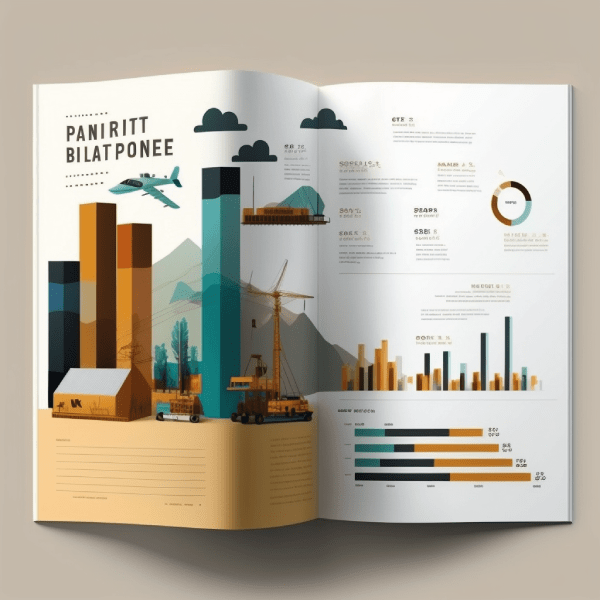Doing your accounting helps your business run smoothly and keeps it within the legal framework. Not only are there certain accounting policies and different requirements in every country, but there are also several tax laws that you should be familiar with in relation to doing your accounting for an Estonian company.
No matter the size of your business, it is always important that there are no extra problems that you have to solve. Using accounting services enable you to focus on earning money and growing your company with no setbacks or fines. In case you need any assistance, we can help you out with our accounting and tax compliance services that we tailor to your specific needs.
Incorporate is ready to help you! Please feel free to reach out to us if you would like to get more information about any of our company formation & management services or accounting services.
Accounting requirements
After your Estonian company formation and the registration into the commercial register are complete, starts the management of your business. Every country is different, and the rules may vary based on the type of business that you have.
Therefore, you must familiarize yourself with the bookkeeping requirements and their standards according to the Estonian law.
Accounting standards
The Estonian financial year is 12 months, however there are certain cases when a company may have a shorter or a longer financial year than 12 months. The maximum duration cannot be over 18. By standard, the financial year is like the calendar year if the articles of association of the company or another document regarding the activities of the accounting do not state otherwise.
That being said, for you to be up to date with everything, we recommend that you work together with a business that offers accounting services and discuss all the requirements relevant to your case.
Accounting Act, IFRS, Estonian GAAP
The current Estonian Accounting Act that is in place was put into force in 2019. This Act is what establishes the legal basis and general requirements for accounting and financial reporting in Estonia. The general requirements for the organisation of accounting are:
- Organise its accounts in a way that ensures provision of the information concerning the financial position, performance and cash flows
- Document all of its business transactions
- On the basis of source documents or summary documents prepared on the basis to post and record all business transactions in accounting ledgers and journals
- Prepare and submit annual reports and other financial statements
- Preserve accounting documents for at least 7 years
If you already are familiar with some of the International Financial Accounting Standards (IFRS), then you might find many similarities in some aspects of the financial reporting, as the GAAP standards are very similar.
In Estonia, all domestic public companies, whose securities are traded in a regulated market, are required to use these standards in their financial reporting. They also permit the use of these standards for listings by foreign companies.
The differences in accounting policies are mainly because in some areas, the Estonian GAAP allows a choice of accounting policy, either the only policy accepted under IFRS for SMEs or the once specified in Estonian GAAP. In areas that are not covered by Estonian GAAP, IFRS for SME is recommended, but not mandatory. Estonian GAAP standard always has a comparison with the respective area of IFRS for SMEs.
As these accounting rules can change quickly, it is a smart move to work with or to be in constant contact with some accounting or legal firm, who provides a similar service and is always up to date with this information.
Annual report
Every Estonian company has the obligation to report their annual financial activities according to the Estonian financial reporting standards, and to submit an annual report based on the financial year that had ended. The annual report usually comprises the company’s annual accounts and management report.
In Estonia, businesses sized are categorized in the following manner based on important indicators:
| Conditions | Micro-enterprise | Small business | Medium-sized business | Big business |
|---|---|---|---|---|
| Indicators on the balance sheet date of the reporting year | All conditions must be met | One figure may exceed | One figure may exceed | At least two indicators exceed |
| Company type | A private limited company of which the sole shareholder is also a member of the management board | All non-micro companies | All companies that are not micro or small businesses | A business |
| Equity requirement | Liabilities do not exceed equity | Not applicable | Not applicable | Not applicable |
| Assets (€) | Up to 150 000 | 4 000 000 | 20 000 000 | 20 000 000 |
| Sales revenue (€) | Up to 50 000 | 8 000 000 | 40 000 000 | 40 000 000 |
| Employees | Does not apply | 50 | 250 | 250 |
However, in case you have a micro-enterprise, as an annual report, the authorities only require you to present a balance sheet (assets, liabilities and owners’ equity), and annual accounts income statement (income, expenses and profit or loss on goods and services), management report is unnecessary.
For bigger companies, they also require a management report. The management report should summarise the activities of the accounting body, circumstances which are material to the assessment of the financial position and must include:
- The main areas of activity, product and service groups.
- Most significant investments made during the year and the ones you plan to make in the near future.
- Any significant events that have occurred while preparing the annual accounts, which have not been stated in the annual accounts report, but may influence the economic performance of the company in the future.
If you would like to read more about submitting an annual report, please click here.
Share capital
The minimum share capital of a private limited company in Estonia is €2,500, for which there is no need to contribute this amount to a bank account during the establishment process with our help. The contribution of the share capital is due when you distribute dividends or change the share capital amount.
Until there has been a full payment of the share capital by all the shareholders, a private limited company shall not increase, decrease the share capital amount, nor pay out dividends. Any share capital value that is above €25,000 has to be verified by an auditor.
Payment of the share capital can be monetary and made at a bank or a financial institution that is and offers services in a member state of the European Economic Area, or it can be non-monetarily (e.g. cryptocurrency or material assets).
If you would like to read more about paying in share capital for your Estonian company, please click here.
Audit
In Estonia, an auditor must go over your company’s accounting and financial documents in case your business operates with high amounts of income, assets or human resources (incl. private limited companies).
Audits are done to eliminate any irregularities within the company’s finances, and it provokes transparency. An internal auditor or an audit firm with a registered, sworn auditor is the one who carries them out.
According to the current audit law, an auditor’s report or a review of your annual accounts is required for entities who whose accounts at least two of the indicators of the financial year exceed the following conditions:
| Condition | Audit | Review |
|---|---|---|
| Sales revenue or income | €4,000,000 | €1,600,000 |
| Total assets as of the balance sheet date | €2,000,000 | €800,000 |
| Average number of employees | 50 people | 24 people |
An audit or a review is required if at least one of the following indicators of the financial year exceeds the following conditions:
| Condition | Audit | Review |
|---|---|---|
| Sales revenue or income | €12,000,000 | €4,800,000 |
| Total assets as of the balance sheet date | €6,000,000 | €2,400,000 |
| Average number of employees | 180 people | 72 people |
All public limited companies have to audit their annual accounts if it has more than two shareholders.
Salaries
Generally, the Estonian personal income tax is paid out of any taxable income like salaries, wages, bonuses, business income, pensions, interest, royalties, capital gains and any other type of remuneration.
Taxes that are paid based of salaries and based on employees located and working in Estonia are generally social tax, 33%, and unemployment insurance – currently 0,8% paid by the employer and 1,6% paid by the employee. An employee’s salary is taxed with 20% of income tax, which is withheld by the employer and paid to authorities in the name of the employee every month.
Also, note that an Estonian sole-proprietor cannot assume the position of an employee in their own company nor pay themselves salary. A sole-proprietor must pay income tax and social tax on their annually earned profits on goods and services and state them in their tax declaration.
If the case is that an Estonian company is paying salary to an employee for work that is performed outside of Estonia, the payroll taxes are not due in Estonia if the employee is not considered an Estonian tax resident. Meaning, if a non-resident performs job duties outside of Estonia, there is no basis for income tax to be withheld in Estonia.
This is the general area where small businesses need the most help when they have several employees and board members residing in different countries due to different countries having different regulations. Things can get really tricky if you have to deal with various double taxation avoidance treaties, controlled foreign corporation rules and numerous definitions of permanent establishments.
Using third-party accounting services can make salary and tax payments be more streamlined and help to save time and money.
Dividends
Currently, there is no corporate income tax (CIT) on profits that are retained and reinvested in the company. Only when a business is paying out dividends to its shareholders, the CIT is due.
Distributed profits are:
- Corporate profits distributed in the tax period.
- Donations, gifts and representation expenses.
- Payments and expenses not related to business.
- Transfer of assets to the head office or to other companies.
The percentage of the CIT can vary from 14% to 20%, which depends on whether they pay it out to a legal person or not and if they do it on a regular basis or not. Dividends payd out to a resident in Estonia do not have any further taxation.
Dividends received by an Estonian company from a daughter company are not considered taxable income if the daughter company (Estonian or a foreign) has already paid taxes on the underlying profits.
VAT ID
By standard, no Estonian company gets a VAT registration ID at the time of its formation. This is done afterwards.
The law says that a company must register itself for VAT if the annual taxable turnover exceeds €40,000 or if intra-EU trade is over €10,000 per the OSS scheme.
Before any thresholds are met, it is voluntary to register for VAT.
Note that the Estonian tax authorities will inspect a company if there are no transactions related to your VAT ID during a 2 to 3-month period. VAT ID is given only if the company is doing business in Estonia (i.e. has office, employees, servers or other activity). If the place of activity is elsewhere, they do not give the Estonian VAT ID.
Non VAT obliged companies
If you do not have a VAT ID for your business, you cannot include any value added tax in your invoices or in your accounting documents. Also, if you are running a sole proprietorship or a small private limited company, you may not even need a VAT for your day-to- day business. On the other hand, if you are aiming to grow and to partner with bigger companies, we suggest you apply for one.
In case you wish to apply for VAT, you must justify and show to the tax and customs board that your company is already or will contribute to the Estonian economy. We also provide VAT registration services if you need help with applying.
VAT obliged companies
Once your business has a VAT number, you can start including it in your prices when you are selling goods or services. The general VAT rate in Estonia is 20%, while they can reduce it to 9% and 0% for certain services.
The taxable period is generally one calendar month and as a VAT payer, you must calculate and pay the VAT amount to the tax authority by the 20th of the month following the taxable period. Keep in mind that it is important to keep and store VAT related accounting documents and present them when it is needed.
Financial statements
Financial statements are important to be presented to prove activities of a business and to ensure that everything is within the legal framework. There are several types of financial statements that you have to present at different times.
As mentioned before, the standard financial year is the same as the calendar year, which you should always keep in mind.
On a monthly basis
On a monthly basis, companies are required to do accounting that is later used to make annual reports to the corresponding Estonian authorities. These documents are the physical basis for recording your daily transactions with goods and services.
Your business should keep the following documents:
- Purchase receipts and invoices (purchase of materials, rent, electricity and water, phone and internet).
- Receipts from the use of your company debit/credit card.
- Sales receipts and invoices handed out which must contain the following:
- Company name, registry no., VAT no.(if applicable), address, contact info (phone no. or email), and your company’s bank account IBAN no.
- No. of the invoice.
- Date.
- Payment deadline.
- Information of the company or the person, who will pay.
- Description of your product or service.
- Price with and without VAT.
On a yearly basis
Annual reports and audits that are attached to it are one of the documents that you have to deliver on a yearly basis to the Estonian Commercial Register. This must be done within six months after the end of every financial year. One can send these documents to the e-Commercial Register by using its portal and the Estonian e-residency card.
There also may be due some statistical reports, either monthly or yearly, but this depends whether the company is selected into the statistical pool or not. Also, these reports can be filled in and filed electronically.
Accounting software
There are a lot of cloud based accounting services available on the market that help to make any business owner’s life easier. These software accounting services enable you to manage your business’ finances better and smoother. Here are some of the benefits of using an accounting software:
- Create and send custom invoices online
- Monitor your finances remotely and in real-time
- Take snapshots of your receipts and invoices
- Insert and extract data directly from the software
- Improved accounting and reporting accuracy
- Increased productivity
We offer all-in-one accounting services for your Estonian business so you can work from anywhere, regardless of your location. You will be given access to a web-based accounting software, which you can access from any device.
Furthermore, we ensure that all of your finances and tax matters are according to the Estonian law, and that everything is done at the right time.
Incorporate is here for you and your business
Estonia’s entrepreneur-friendly business environment makes it the ideal place to incorporate your company. If you are interested in registering your company in Estonia, let us help you sail smoothly through the process.
Reach out to us, and we’ll get you started!



